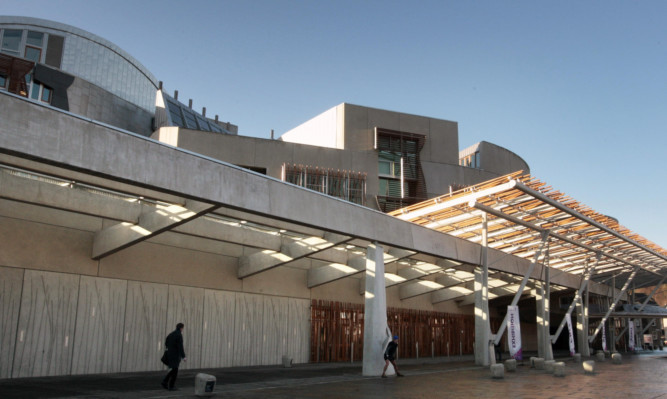The Scottish Government’s insistence that Westminster has written a right of veto into the new devolution settlement is “ludicrous”, a committee of MPs has concluded.
The SNP Government says the draft law transferring new powers to Scotland contains “12 vetoes” where the UK Government can stifle the will of the Scottish Parliament.
They include a requirement to consult the Scottish Secretary on devolved benefit changes and secure his agreement before changes can take effect.
A report by the Commons Scottish Affairs Committee said: “The idea that the draft clauses contain ’12 vetoes’ is a ludicrous one and it is disappointing that the UK Government failed adequately to rebut such claims.
“The Scottish Government has sought to conflate the need for consultation between governments, a basic requirement for good governance within a framework of devolved and central government, with the idea that the UK Government could impose restrictions.”
The committee accepts the Secretary of State’s view that “there are no such vetoes” in the draft clauses.
“Regrettably, the UK Government has failed to rebut these claims with sufficient vigour,” it added.
The Smith Commission recommended that the new devolved powers should create “no detriment” to either Scotland or the rest of the UK.
But the committee said “the potential for grievance over the operation of the no detriment principle is enormous”.
“If the Smith Agreement is to be an enduring settlement both governments must work together in good faith and agree a mechanism to administer a policy of no detriment that is proportionate, fair and based on independently verified data,” it said.
“Whatever the mechanism decided upon, the new fiscal framework must have the support of both governments and deliver a robust set of fiscal rules that are fair, transparent and which allow the Scottish Government the power to exercise its new responsibilities while bearing the consequences of its actions.”
The SNP’s call for “full fiscal autonomy”, generally interpreted as control over all taxation and spending apart from foreign affairs and defence, would leave a hole in Holyrood finances equivalent to half the Scottish NHS budget, the committee added.
“The collapse in the oil price is a stark reminder of the risks that face economies which rely on a volatile revenue stream to fund a large proportion of their public spending,” it said.
“The conclusion of the Smith Commission not to devolve such a volatile source of revenue, nor to recommend full fiscal autonomy, but instead to retain the system of shared benefit and pooled risk across the United Kingdom, has already proved to be a wise decision, and one that is of obvious and immediate benefit to the people of Scotland.”
Committee chairman Ian Davidson, a Labour MP, said “This transfer of powers and resources to the Scottish Parliament is very welcome and strikes the right balance between our twin desires: for both further devolution and financial security while also respecting the referendum decision.
“Now we need to hear what should be done with these new powers, particularly the opportunity to increase, by any amount, each and every benefit and to change all tax rates and bands.”
The SNP has abstained from the Scottish Affairs Committee since 2011 and its active membership is composed of Labour, Conservative and Liberal Democrat MPs.
A Scotland Office spokesman said: “This report from the Scottish Affairs Committee confirms the UK Government has delivered the next chapter in devolution for Scotland.
“It also highlights the importance of Scotland’s two governments working together in good faith to implement the draft clauses and develop a fiscal framework to govern the new economic relationship between Scotland and the rest of the United Kingdom.
“The emphasis is now with the Scottish Government to detail how they will use the new powers in addition to the significant ones for which it already has responsibility.”
